Free Volunteer Thailand 28/03/2018 por André Silva
Free Volunteer Thailand – André Silva (28/03/2018)
- After the LIVE that Letícia Mello from the Do For Love Project and I did, I decided to write this post to summarize all the questions we answered so that it stays fixed and you can read it calmly at any time. During the LIVE, we also had the participation of Clayton Zeca and Letícia Zotto, two Brazilians who had just volunteered in the Thailand project and are open to receiving messages from anyone who wants to ask questions directly.
Let’s go!
- Volunteering is about giving and dedicating yourself, stopping your routine and opening up to new learnings. In my opinion, volunteering is like meditation. When we finally manage to quiet our minds, stop our thoughts to let the universe act, and observe the present, we start to live a new reality. Volunteering is an opportunity for personal growth because while we give our effort, time, and knowledge, we receive even more in return. It is a true cultural immersion in new customs, cuisine, learning, respect for others, dedication, and a lot of love—memories we will carry with us forever.
- Questions are normal for anyone who has never embarked on an adventure like this, and that’s what I’m here for. I discovered Free Volunteer Thailand when I read Letícia’s book “Do For Love” and jumped into a one-month experience in the project. Even though I’m no longer in Thailand, I remain a remote volunteer for the project, working by interviewing and selecting candidates.
- About the Project
- The English teaching program in rural Thailand was created in 2013 by Jason, a young Thai teacher, aiming to bring more opportunities to children in the Sakaeo province, a rural area with almost no contact with the English language or tourists. The presence of foreign volunteers enriches learning with new methods and even more appropriate and efficient materials.
- Who Can Volunteer?
- Anyone over 20 years old with proficient English, meaning intermediate to advanced level and good fluency. Keep in mind that this is not the ideal place to practice your English level; the students need teachers who can lead and create teaching methods.
- About Classes
- Most schools do not have teaching materials available, meaning they do not follow a pre-established textbook. Some schools have created a “Volunteer Diary,” where daily notes of what was taught in each class are recorded. The diary is very helpful, but it’s interesting to assess the students’ knowledge and research the best ways to help, whether by creating exercises, games, songs, etc. Remember, they are children, and playing is part of learning! Feel free to bring videos, music, books, or any material you think is valuable for educating the children. You can even leave the material as a gift at the end of your period.
- About Wi-Fi
- Yes, all schools have internet! Feel free to bring your personal computer; some schools provide a laptop for volunteers. You will have plenty of time to research new lessons daily, so do not worry.
- About Accommodation
- Each school is responsible for its volunteers. You may stay within the school in a specially built space, in a teacher’s home, or in a rented house. All accommodations are always very close to the school. Meals are also provided daily: breakfast, lunch, afternoon snack, and dinner. Nothing prevents volunteers from buying supplies like cookies, sweets, or anything they might miss. Keep in mind that the provided meals are always local dishes. For dietary restrictions, it is important to clarify in the application form and notify the school about vegan or vegetarian options. The region has plenty of vegetables, legumes, and fruits. Food is usually heavily seasoned with fish sauce, so consider bringing supplements if needed. The food can be very spicy, so specify if you want less or no spice (mai ped = no spice). Volunteer accommodations are very simple: water at room temperature, often no traditional shower (bucket bath), and manual flushing. The locals offer their normal, simple lifestyle with a lot of love.
- About Fees
- The fees are symbolic: $15 USD to apply (non-refundable). After passing the second phase, a Skype interview, the volunteer pays: $50 USD for 1 month $25 USD for 2 months Free for 3 months or more The longer you stay, the less you pay. Other costs, like airfare, accommodations outside the program, outings, meals outside the school, transportation, and health, are the volunteer’s responsibility. Fees cover volunteer expenses.
- Is it only English classes?
- Yes! The project was created to provide better living conditions and employment opportunities, as tourism is one of the main economic activities. Extra talents are welcome to enhance the classes.
- Class Times and Student Ages
- Schedules depend on the school. Daily hours vary from 3 to 6 hours (6 hours is rare) from Monday to Friday, with weekends free. Students range from 5 to 16 years old, and some schools may also have adult classes. Volunteers are generally met with smiles and enthusiasm. You will have plenty of free time. Initially, I stressed about respecting class schedules, but sometimes students were sitting in hallways when it was class time, and the principal would just smile and say: “Thai time.” Relax, go slowly, and with love. Sports activities like football or volleyball are a bonus.
- Weekends
- Weekends can be lonely if you are the only volunteer, but you can contact other volunteers in nearby schools to organize mini-trips. The principal can help transport you.
- Safety
- Thailand is very safe. Despite poverty, crime is rare. In crowded places, watch your belongings. Bangkok requires extra caution due to pickpockets. Solo female travelers should remain attentive but not afraid.
- School Placement
- Once approved and fees are paid, Jason will assign you to one of the 43 schools based on need and your preference (rural or urban). You’ll receive the school director’s contact and, if available, other volunteers’ contacts, allowing you to know the school size, student numbers, ages, and accommodations clearly.
- Group Volunteers
- You can volunteer with others, provided everyone goes through the approval process. Couples will be placed in the same school if possible. Larger groups may be split but kept close if feasible.
- Transportation
- Schools provide transport for shopping, banking, or errands during the week. On weekends, rural school volunteers can be taken to bus points by teachers.
- Weather and Clothing
- Thailand is hot and humid. The hottest period is March–May, followed by the rainy season May–October. Volunteers cannot participate during school holidays: April 1–May 15 and the entire month of October. Wear light clothes; long pants are required for teaching, and women must cover shoulders and knees. For temple visits, these rules apply. Buddha Day occurs once a week, with students going to the temple to pray and eat with monks. Volunteers should wear a white shirt on this day. Clothing needs depend on personal requirements; items can be washed weekly. Affordable clothing is available locally.
- Application Process
- Apply online at www.freevolunteerthailand.org . Read everything on the site, click “How to Volunteer,” and follow instructions. Requirements include proof of English proficiency, criminal background certificate, age over 20, and no communicable diseases. Upload documents, pay the $15 USD fee, and upon approval, attend a Skype interview. Specify the preferred time and type of school. Fees are only paid after approval. Payments are via PayPal.
- Penalty
- A $650 USD penalty applies if a volunteer cancels mid-program. This ensures the program’s stability and protects arrangements. Notification is required at least 15 days prior to arrival to avoid the penalty.
- Certificate
- Yes, volunteers receive a certificate at a farewell event or dinner, along with hugs and tears.
- Final Notes
- This is a genuine project where a single teacher made a difference. Jason helps children gain better future opportunities and inspires volunteers to learn new ways to give and love. When I went, I had basic questions: school address and student ages to prepare materials. The rest happened day by day, teaching, learning, having fun, and engaging with the project. By the end of the month, the experience was intense and transformative. If you truly want to go, go! Immerse yourself and let things happen naturally. Experiences may vary, but it’s worth it.
BKM
Blog Category
ล่าสุด
-
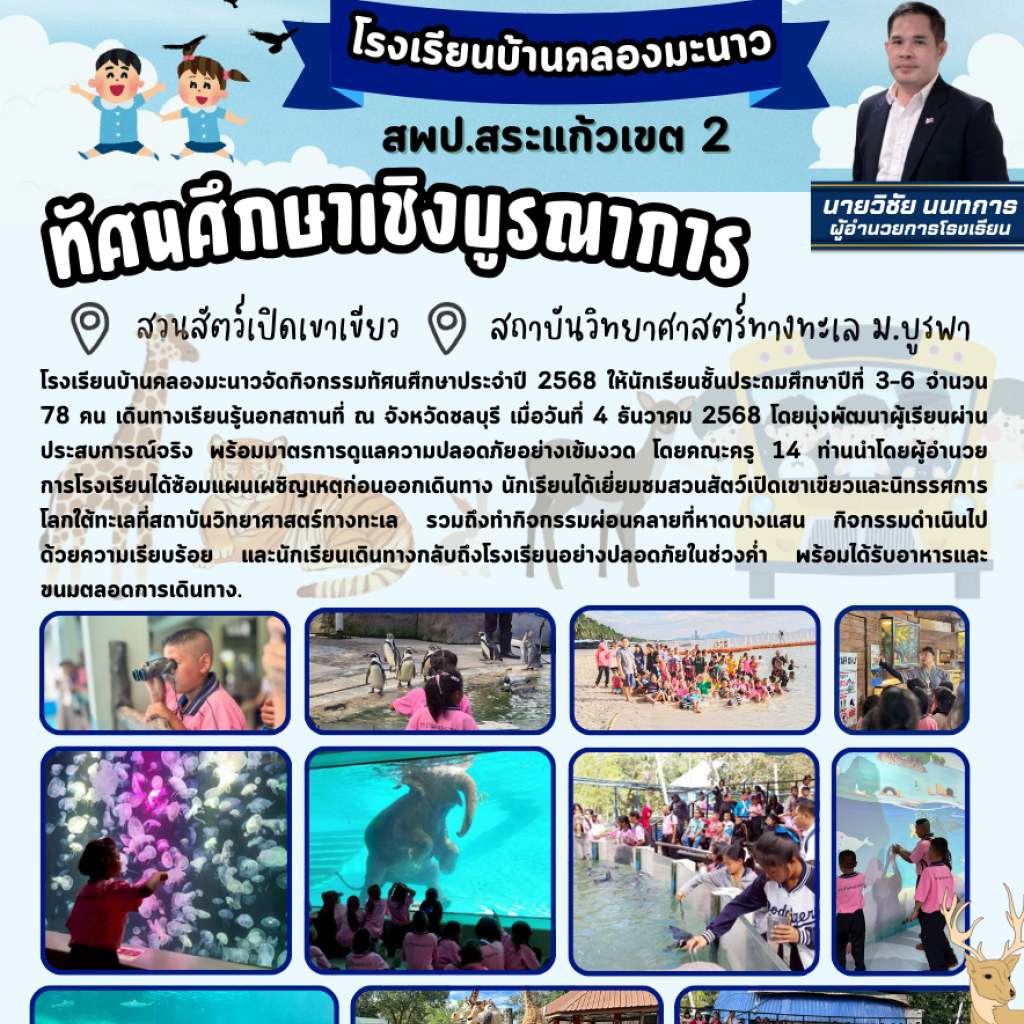 ทัศนศึกษาเชิงบูรณาการ จังหวัดชลบุรี โรงเรียนบ้านคลองมะนาวจัดกิจกรรมทัศนศึกษาประจำปี...
ทัศนศึกษาเชิงบูรณาการ จังหวัดชลบุรี โรงเรียนบ้านคลองมะนาวจัดกิจกรรมทัศนศึกษาประจำปี... -
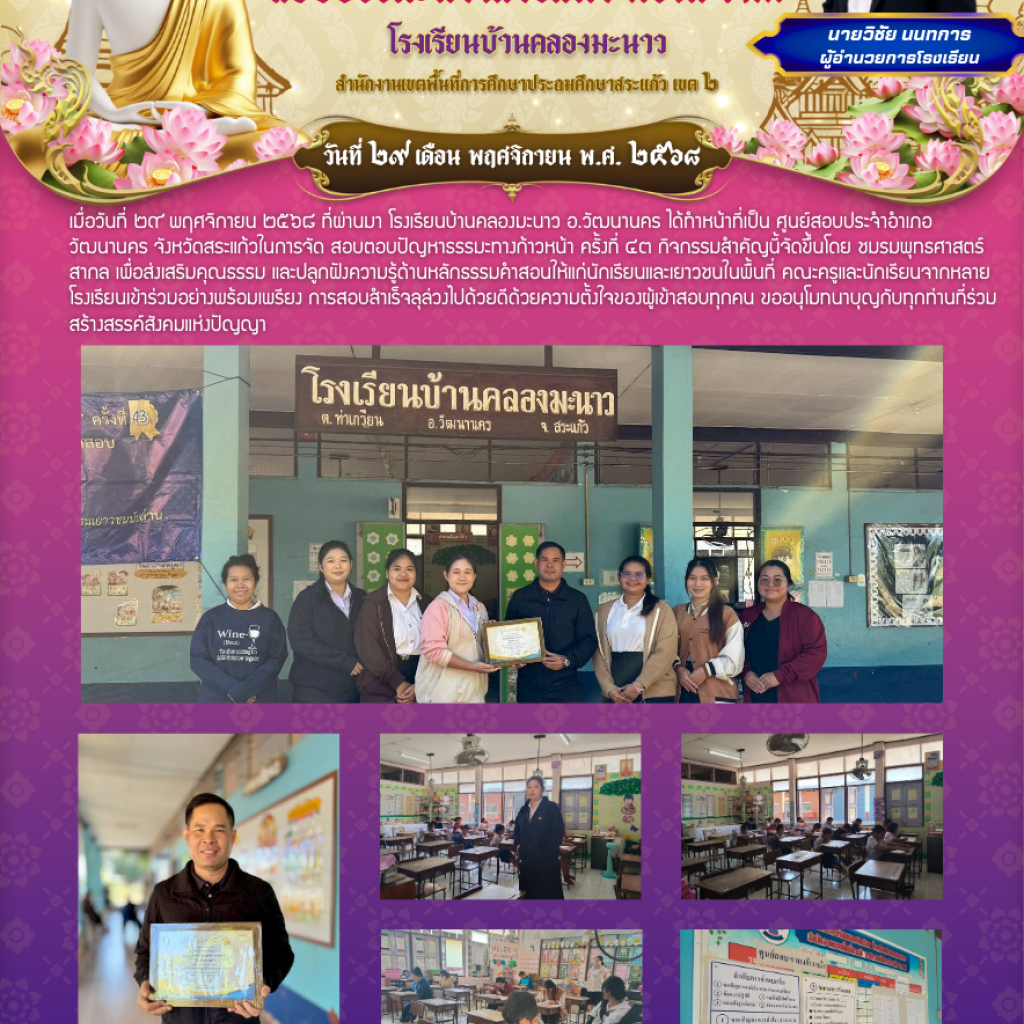 สอบธรรมะทางก้าวหน้า ครั้งที่ ๔๓ จดหมายข่าวประชาสัมพันธ์ ? โรงเรียนบ้านคลองมะน...
สอบธรรมะทางก้าวหน้า ครั้งที่ ๔๓ จดหมายข่าวประชาสัมพันธ์ ? โรงเรียนบ้านคลองมะน... -
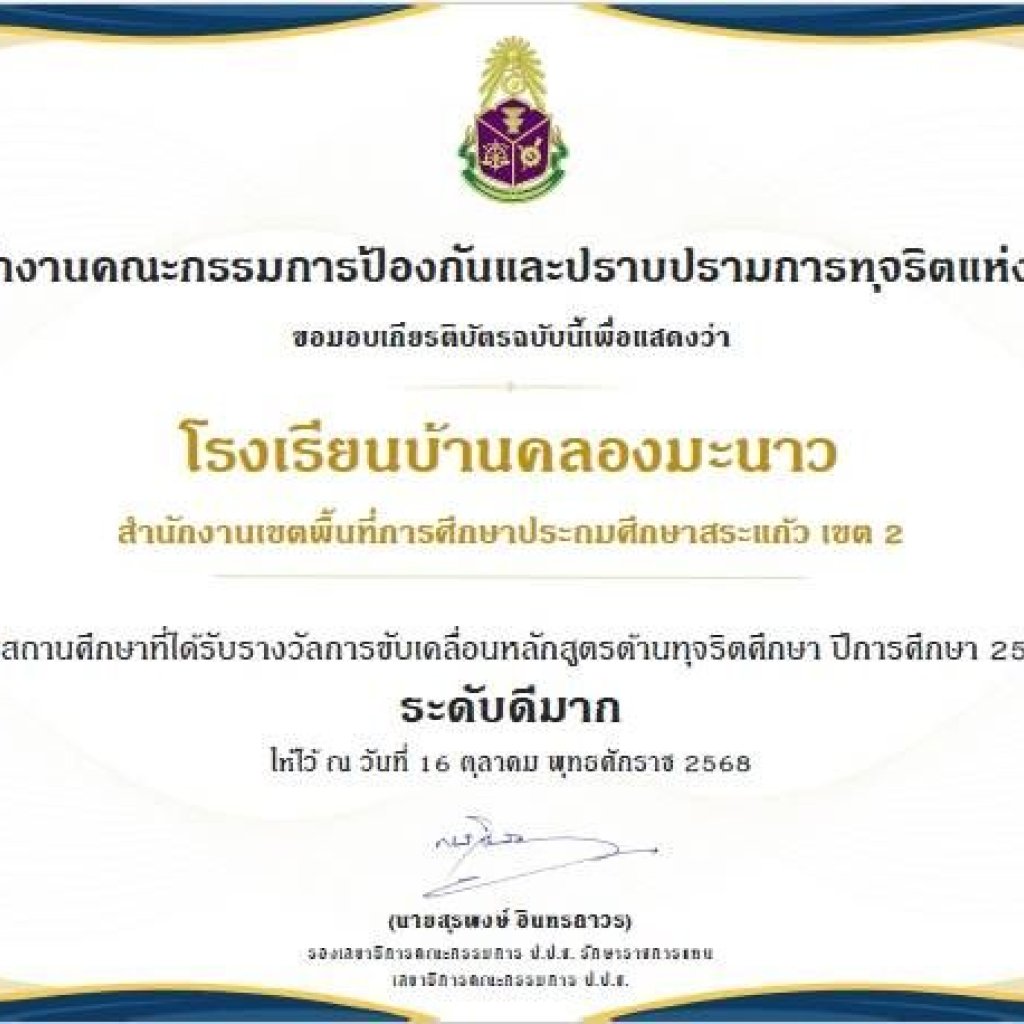 โรงเรียนบ้านคลองมะนาว คว้าสถานศึกษาที่ได้รับรางวัล “ระดับดีมาก” ด้านหลักสูตรต้านทุจริตศึกษา จาก ป.ป.ช. โรงเรียนบ้านคลองมะนาว คว้าสถานศึกษาที่ได้รับราง...
โรงเรียนบ้านคลองมะนาว คว้าสถานศึกษาที่ได้รับรางวัล “ระดับดีมาก” ด้านหลักสูตรต้านทุจริตศึกษา จาก ป.ป.ช. โรงเรียนบ้านคลองมะนาว คว้าสถานศึกษาที่ได้รับราง... -
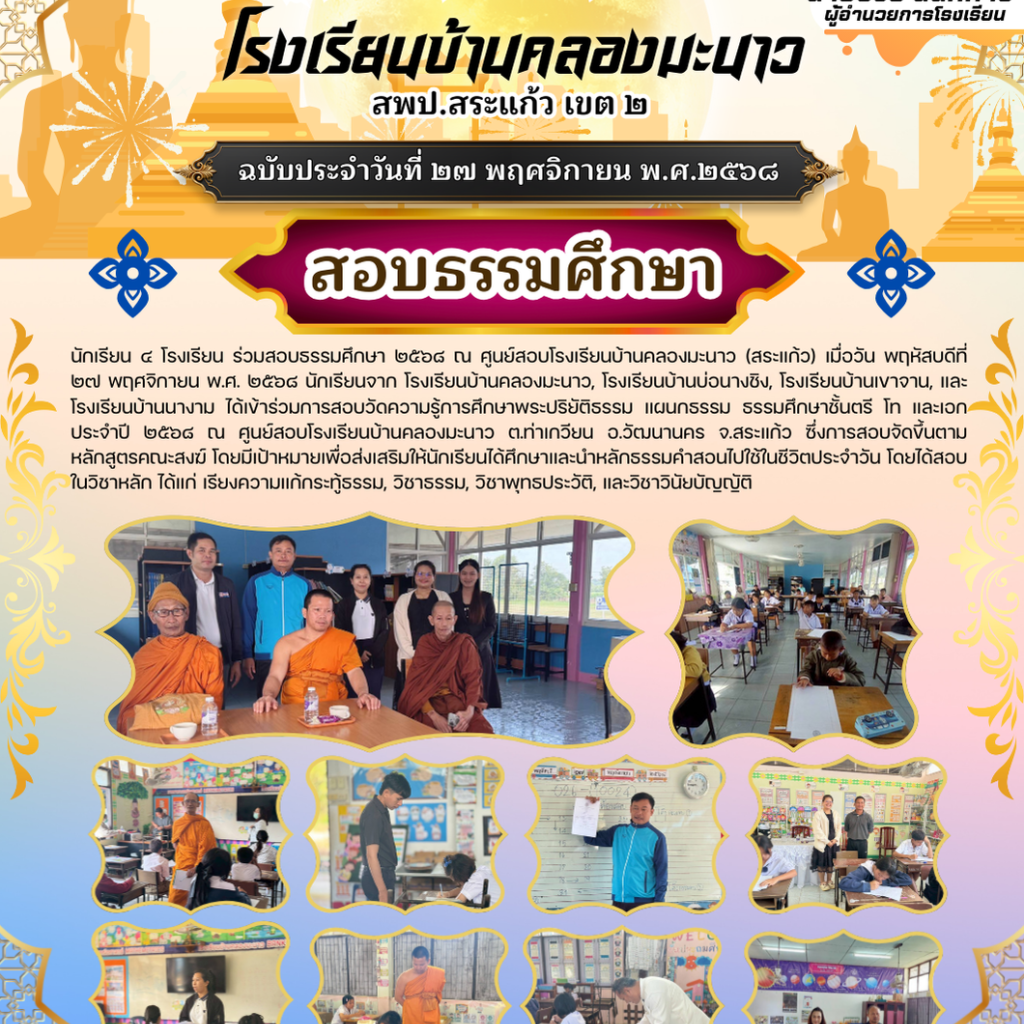 สอบธรรมศึกษา ๒๕๖๘ ณ ศูนย์สอบโรงเรียนบ้านคลองมะนาว ข่าวประชาสัมพันธ์ โรงเรียนบ้านคลองมะนาว นักเร...
สอบธรรมศึกษา ๒๕๖๘ ณ ศูนย์สอบโรงเรียนบ้านคลองมะนาว ข่าวประชาสัมพันธ์ โรงเรียนบ้านคลองมะนาว นักเร... -
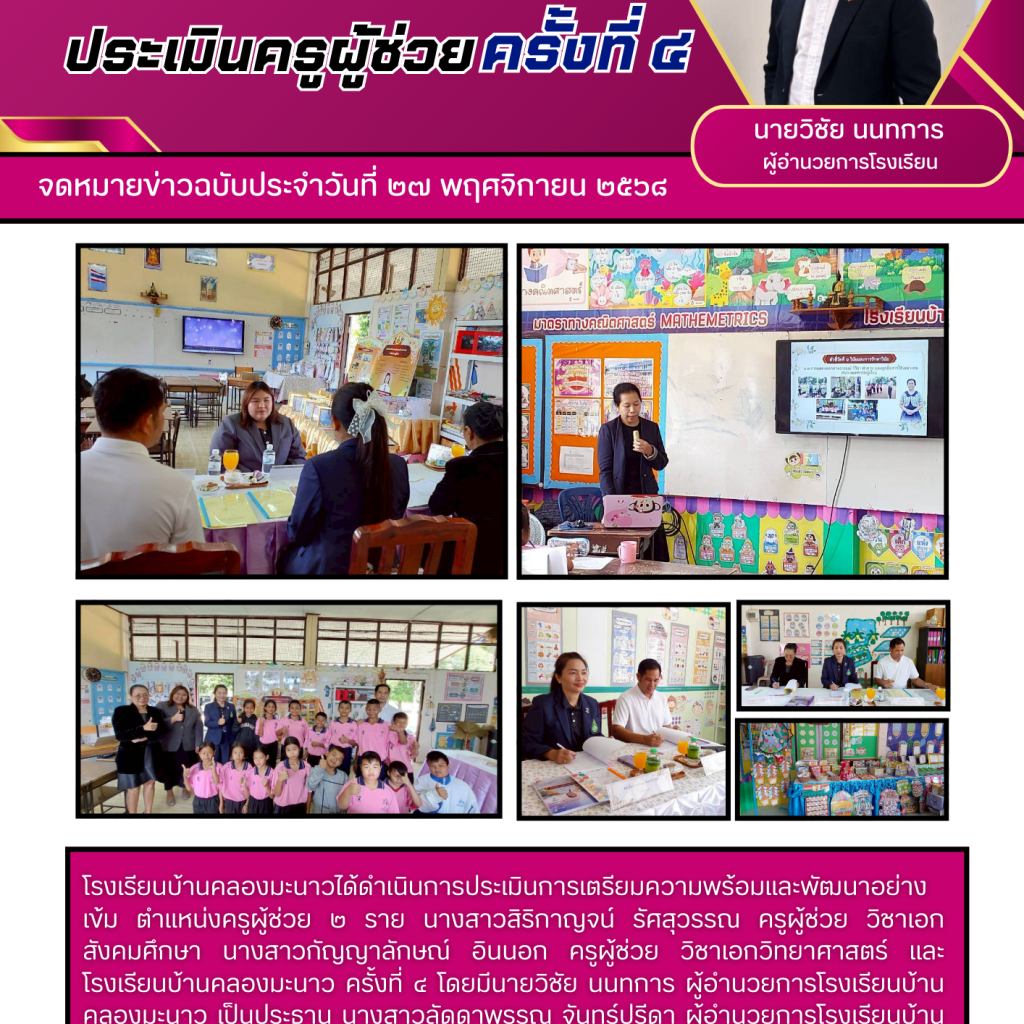 ประเมินครูผู้ช่วย ครั้งที่ ๔ วันที่ 27 พฤศจิกายน 2568 โรงเรียนบ้านคลองมะนาว...
ประเมินครูผู้ช่วย ครั้งที่ ๔ วันที่ 27 พฤศจิกายน 2568 โรงเรียนบ้านคลองมะนาว...